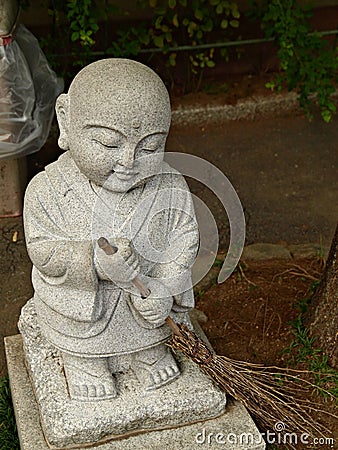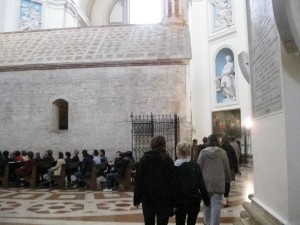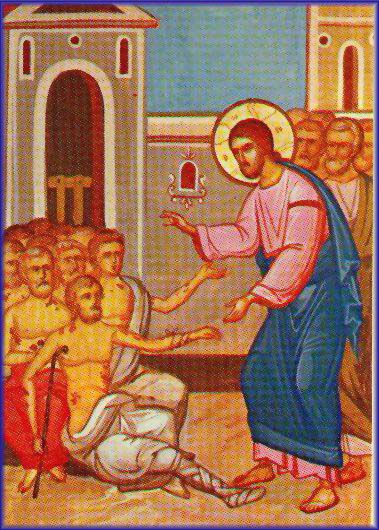Francis, seeing that the Lord
wished to multiply the number of his friars, said to them, “Dearest brothers
and my little sons, I see that the Lord wills to multiply us. So it seems good and religious to me that we
should obtain either from the canons of St. Rufinus or from the Abbot of St.
Benedict, some church where the friars may say their Hours and only have near
it some small sorry hut constructed from mud and branches, where the brethren
may rest and work. For this place is not
fitting nor sufficient to the friars, since the Lord wishes to multiply them
and especially since we have here no church where the friars may say their
Hours. And if any friar should die, it
would not be fitting to bury him here, nor in a church of the secular
clergy.” And this speech pleased all of
the friars.
So he went to the Bishop of Assisi, and laid the request
before him. The Bishop replied to him,
“Brother, I have no church which I can give you,” and the canons also said the
same. Then he went to the Abbot of St.
Benedict of Monte Subasio and laid the same proposition before him. But he Abbot, moved with piety, having
counseled with his monks, with the divine will and grace operating, conceded to
Francis and his friars the church
of St. Mary of the
Porziuncula, as the smallest and poorest church they had. And the Abbot said to blessed Francis,
“Behold, brother, we have granted what you have asked. But if the Lord should multiply this
congregation, we wish that this place would be foremost among your
dwellings.”
And the speech pleased
Francis and his brothers, and Francis rejoiced greatly concerning the place
conceded to the friars, especially on account of the name of the church, of the
Mother of Christ, and because it was so small and poor a church, and also
because it was named the Porziuncula, in which it was prefigured that it should
be the head and the mother of the poor Friars Minor. For the church was called the Porziuncula,
because of that court which was formerly called “the little portion.” So Francis was given to say, “The Lord wished
that no other church should be granted to the friars, and that the first friars
should not as then build a new church nor have any other except that, since by
this, through the advent of the Friars Minor, a certain prophecy was
fulfilled.”
And though it was poor and
now destroyed, yet for a great time the men of the city of Assisi and of all its lordship had had great
devotion to that church, and they have a greater today and dail honor it. So as the brothers went there to live, from
that time the Lord multiplied their number almost daily and their reputation
was wonderfully scattered through all the valley of Spoleto,
and many parts of the land. Yet of old
it was called St. Mary of the Angels because, as it was said, the songs of
Angels and of celestial spirits were there heard of those coming to the place.
-Mirror of Perfection Section IV, Chapter 55
I love this story partly because it reflects an event that happened in the early days of Anawim.
In 2003, my family and I were being kicked out of our apartment because we invited the homeless to visit and sometimes stay with us. The new owner didn't like our kind of people, so he gave us a 30 day notice, which was his right. However, years before we had moved in without a deposit in the lowest rent district in town... and finding a new place would be difficult at best. Frankly, we just didn't have the money for it.
I called two people for prayer-- my pastoral overseer and my father-- for prayer, because we didn't know what to do. Two days later, my father called me and offered to purchase a house for us.
We were shocked, and praising God, and overjoyed. But we also realized that we had only a little time to find another place. So we looked at the internet, and we sought God. I felt God was saying to look nearby downtown Portland, so we did... with no luck. It wasn't so much that the places around downtown were so expensive, but that they were so difficult to do ministry out of. We had a family of five who were ministering to the homeless-- what kind of house would do for that?
Diane (my wife) and I took to driving down streets, looking for houses for sale. One house we drove by was just right-- it was large, and just north of downtown Portland. Diane said, "It's going to be way too expensive." I said that it couldn't hurt to try, so we called our realtor and set up an appointment.
The house WAS huge. It had six bedrooms and a couple sheds in the back. It had a shower downstairs that could be used for the homeless. And it wasn't too expensive. The sellers were an old couple who had done ministry to the homeless out of the house for years. We took a liking to each other just as soon as we met. It was done.
However, the house was beat up, torn down, and filled with at least thirty years of junk. There were whole rooms full of trash and old wood. It took almost a year to clear it all out. The wiring was old and problematic. But overall, it is wonderful and we appreciate it so much.
We have had dozens of people stay in our house-- at one point we had as many as 16 people in the house. It is a wonderful gift of God-- and my father-- and we appreciate it every day.
A gift that is broken down and weak is still a gift. And the gift given with generosity and sincerity will always be rewarded.
 Jesus also said that his true disciple would have persecution and rejection. Paul went so far as to say, "Anyone who lives a godly life in Christ Jesus will be persecuted." Thus, when persecution comes, we ought to rejoice that we are true disciples of Jesus, and not reject it at all. Even so, in Acts 5, when the apostles were scourged, they rejoiced that they were counted worthy to suffer for Jesus' name.
Jesus also said that his true disciple would have persecution and rejection. Paul went so far as to say, "Anyone who lives a godly life in Christ Jesus will be persecuted." Thus, when persecution comes, we ought to rejoice that we are true disciples of Jesus, and not reject it at all. Even so, in Acts 5, when the apostles were scourged, they rejoiced that they were counted worthy to suffer for Jesus' name. 

































